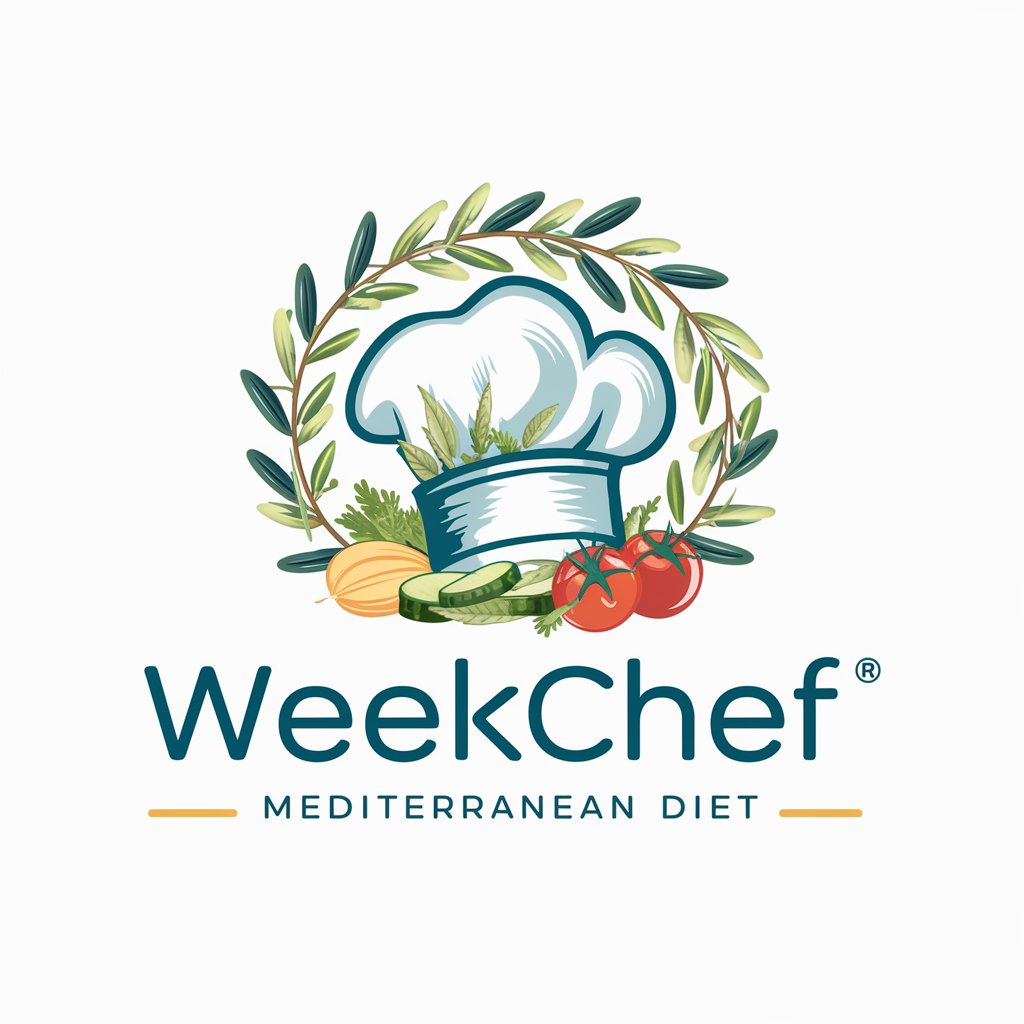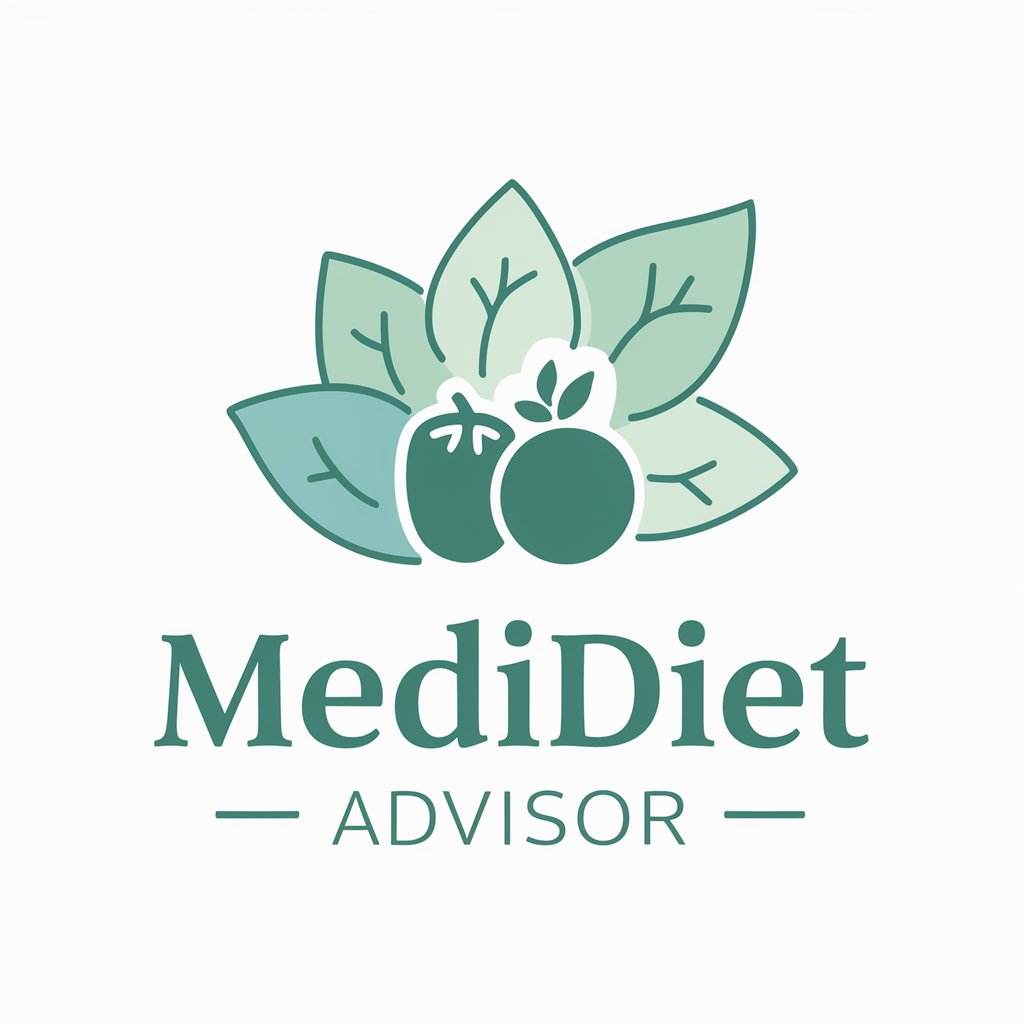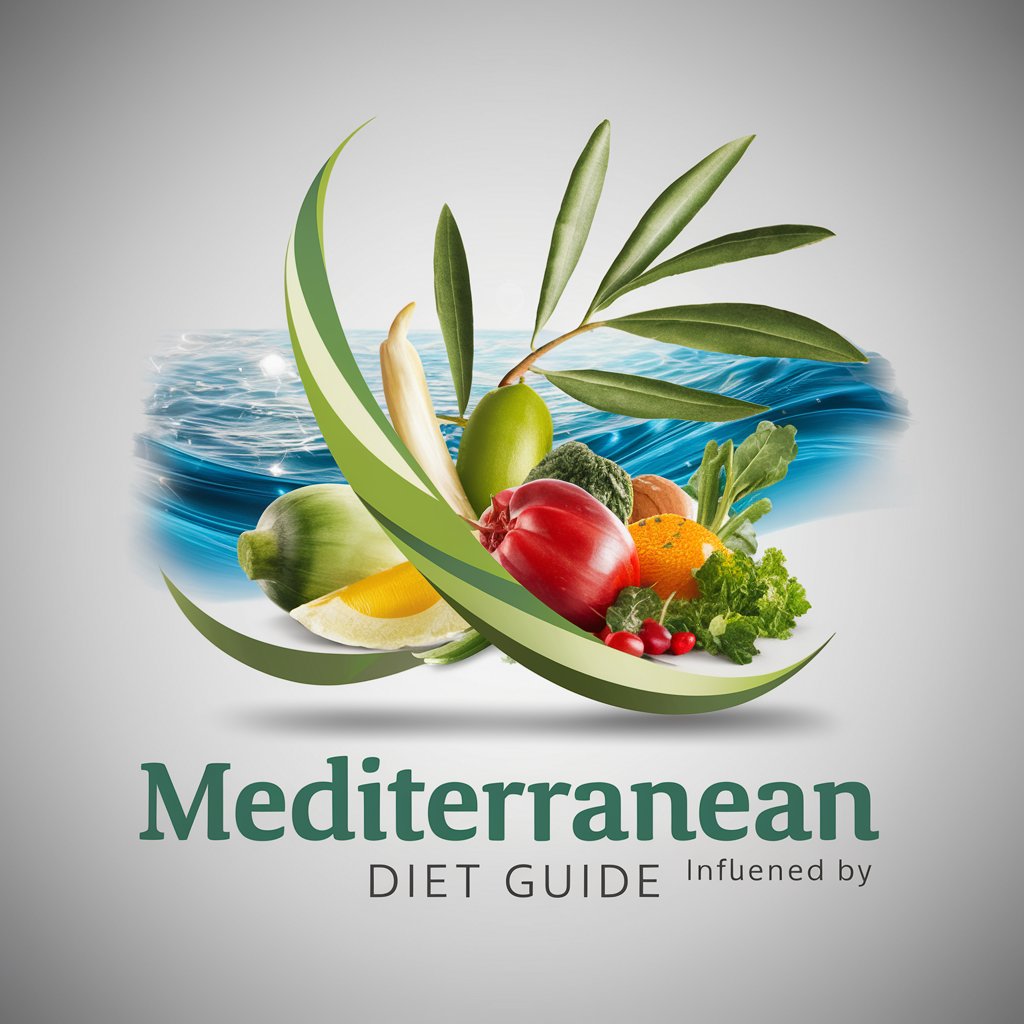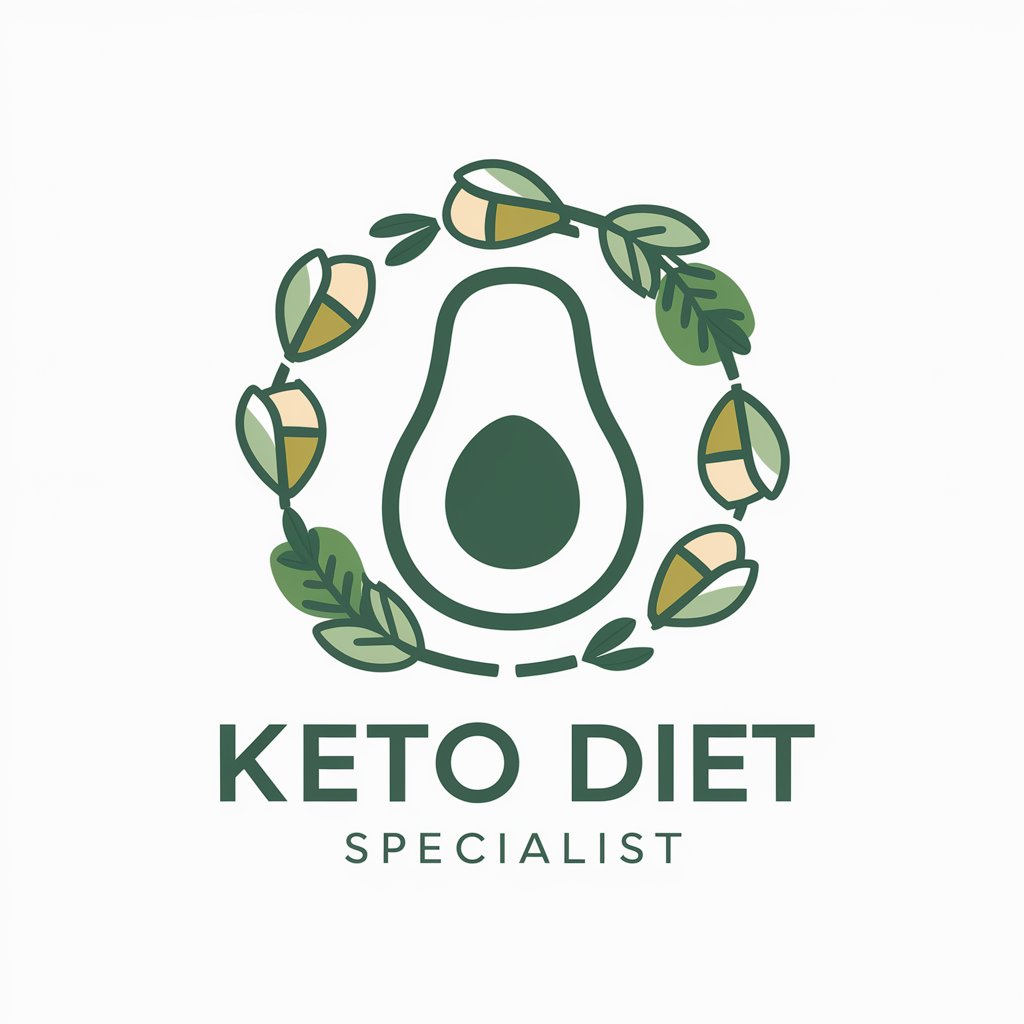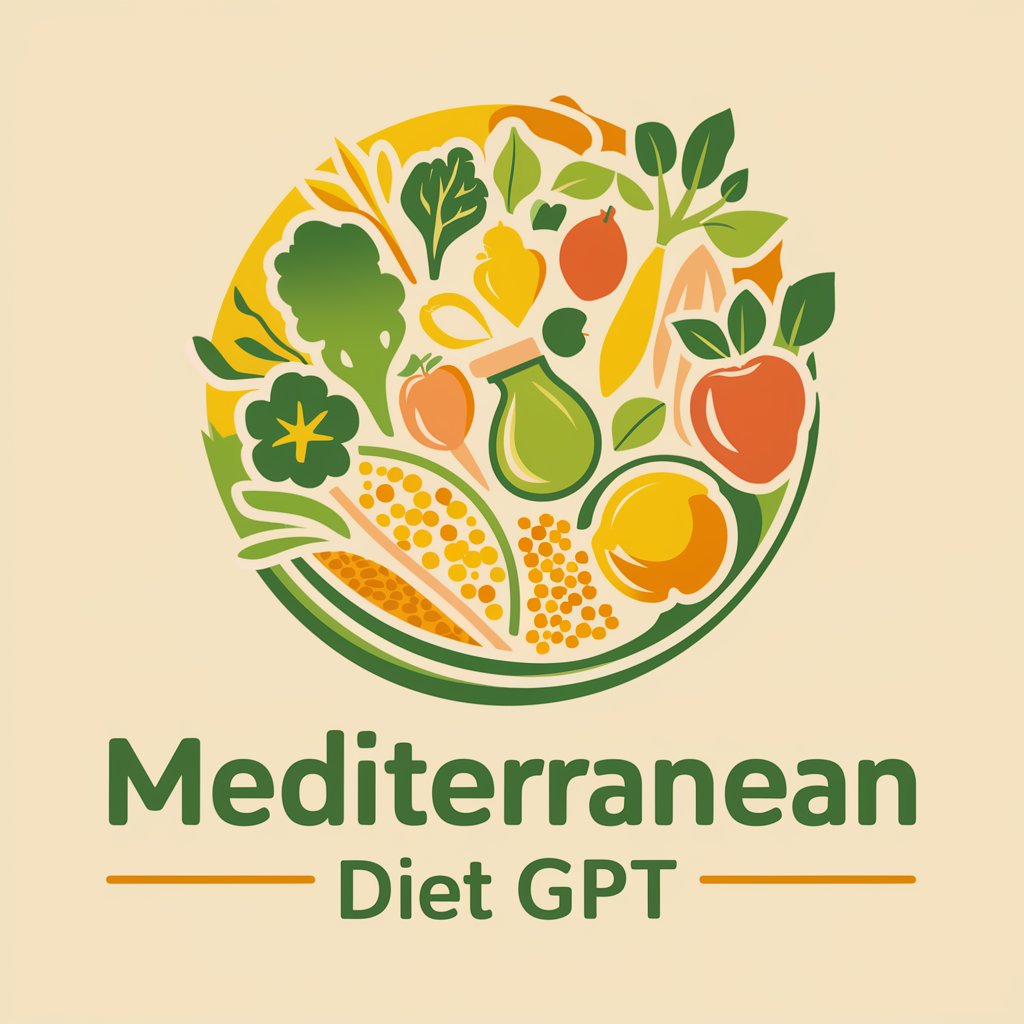
Mediterranean Diet - Mediterranean Diet Guide

Welcome! Discover the vibrant world of the Mediterranean diet with me.
Discover Health with AI-Powered Mediterranean Insights
Tell me about the key principles of the Mediterranean diet.
How can I start incorporating Mediterranean eating habits into my daily routine?
What are some authentic Mediterranean recipes for a beginner?
Can you explain the health benefits of following a Mediterranean diet?
Get Embed Code
Understanding the Mediterranean Diet GPT
The Mediterranean Diet GPT is a specialized digital assistant designed to offer comprehensive support and information regarding the Mediterranean diet, a nutritional recommendation inspired by the traditional dietary patterns of countries bordering the Mediterranean Sea. The core purpose of this GPT is to educate users on the fundamentals of the diet, emphasizing the consumption of fresh fruits, vegetables, whole grains, nuts, seeds, and olive oil as primary sources of healthy fats. It also provides insights into the inclusion of moderate amounts of fish and poultry, and the occasional use of dairy products and red wine, highlighting the diet’s flexibility and cultural diversity. Through personalized advice, this GPT addresses dietary restrictions, offers cooking tips, and suggests meal plans that adhere to the diet's principles. Examples include crafting a meal plan for someone with gluten intolerance, guiding users in incorporating more seasonal vegetables into their diets, or offering step-by-step instructions for preparing traditional Mediterranean dishes like tabbouleh or ratatouille. Powered by ChatGPT-4o。

Core Functions of the Mediterranean Diet GPT
Personalized Dietary Advice
Example
Providing a customized meal plan for an individual with specific dietary needs, such as low sodium or gluten-free requirements.
Scenario
A user diagnosed with hypertension seeks advice on adapting the Mediterranean diet to lower sodium intake. The GPT offers alternatives to high-sodium foods, suggesting the use of herbs and spices for flavoring, alongside a tailored meal plan that emphasizes fresh produce and lean proteins.
Seasonal Eating Guides
Example
Offering a seasonal eating guide that lists fruits and vegetables available in different seasons, along with recipe suggestions.
Scenario
A user wants to know what vegetables are in season during fall in the Mediterranean region. The GPT provides a list of seasonal produce such as squash, grapes, and figs, along with recipes like roasted squash with rosemary and baked figs with honey.
Cultural and Culinary Education
Example
Sharing the historical and cultural significance of Mediterranean cuisine, including the origins of certain dishes and ingredients.
Scenario
A user expresses interest in the history of olive oil in Mediterranean cuisine. The GPT delves into the ancient cultivation of olive trees, traditional extraction methods, and the cultural symbolism of olive oil, complemented by recipes that highlight its versatility.
Lifestyle and Wellness Tips
Example
Advising on complementary lifestyle practices that align with the Mediterranean diet, such as physical activity and stress management techniques.
Scenario
A user looking to adopt a holistic approach to the Mediterranean lifestyle receives guidance on incorporating regular physical activity, like walking or swimming, and stress-reducing practices such as mindfulness meditation, aligning with the diet’s philosophy of overall well-being.
Who Benefits from the Mediterranean Diet GPT?
Health-conscious Individuals
People seeking to improve their overall health, manage weight, or reduce the risk of chronic diseases such as heart disease, diabetes, and cancer. They benefit from personalized meal planning, dietary advice, and lifestyle tips that promote long-term health improvements.
Culinary Enthusiasts
Those with a passion for cooking and exploring diverse cuisines, especially Mediterranean flavors. This group appreciates the GPT’s guidance on traditional recipes, cooking techniques, and the cultural history behind the dishes.
Individuals with Specific Dietary Needs
Users with dietary restrictions or allergies, such as gluten intolerance or lactose sensitivity. They benefit from the GPT’s ability to tailor advice and meal suggestions that cater to their specific health needs while adhering to the Mediterranean diet principles.
Lifestyle Seekers
Individuals looking to embrace a holistic lifestyle that includes not only a balanced diet but also physical activity and mental well-being. They are drawn to the Mediterranean Diet GPT for its comprehensive approach, encompassing stress management techniques and suggestions for regular physical activity.

Getting Started with the Mediterranean Diet GPT
Sign Up for a Free Trial
Begin your journey by visiting yeschat.ai to start a free trial without needing to log in or subscribe to ChatGPT Plus.
Explore Mediterranean Recipes
Dive into a vast collection of Mediterranean recipes, focusing on fresh fruits, vegetables, whole grains, and healthy fats.
Learn About Nutritional Benefits
Study the health benefits associated with the Mediterranean diet, such as heart health improvements and enhanced longevity.
Plan Your Meals
Use our tools to create meal plans that adhere to Mediterranean dietary guidelines, ensuring a balanced intake of nutrients.
Engage with the Community
Join discussions and share experiences with other Mediterranean diet enthusiasts to gain insights and stay motivated.
Try other advanced and practical GPTs
Easy Thank You Notes
Craft Heartfelt Thanks with AI

俳句名人
Crafting Haiku with AI Elegance

俳句マスター
Empowering poetic expression through AI.

HiQuick(俳句一句)
Craft personalized haikus with AI.

俳句クリエイト
Craft Your Haiku with AI

俳句猫
AI-powered Haiku Artistry

Diet Geek
Smart Nutrition, Tailored for You

Diet Chef
Nutrition Tailored by AI

Diet Decoder
Empowering Your Diet Decisions
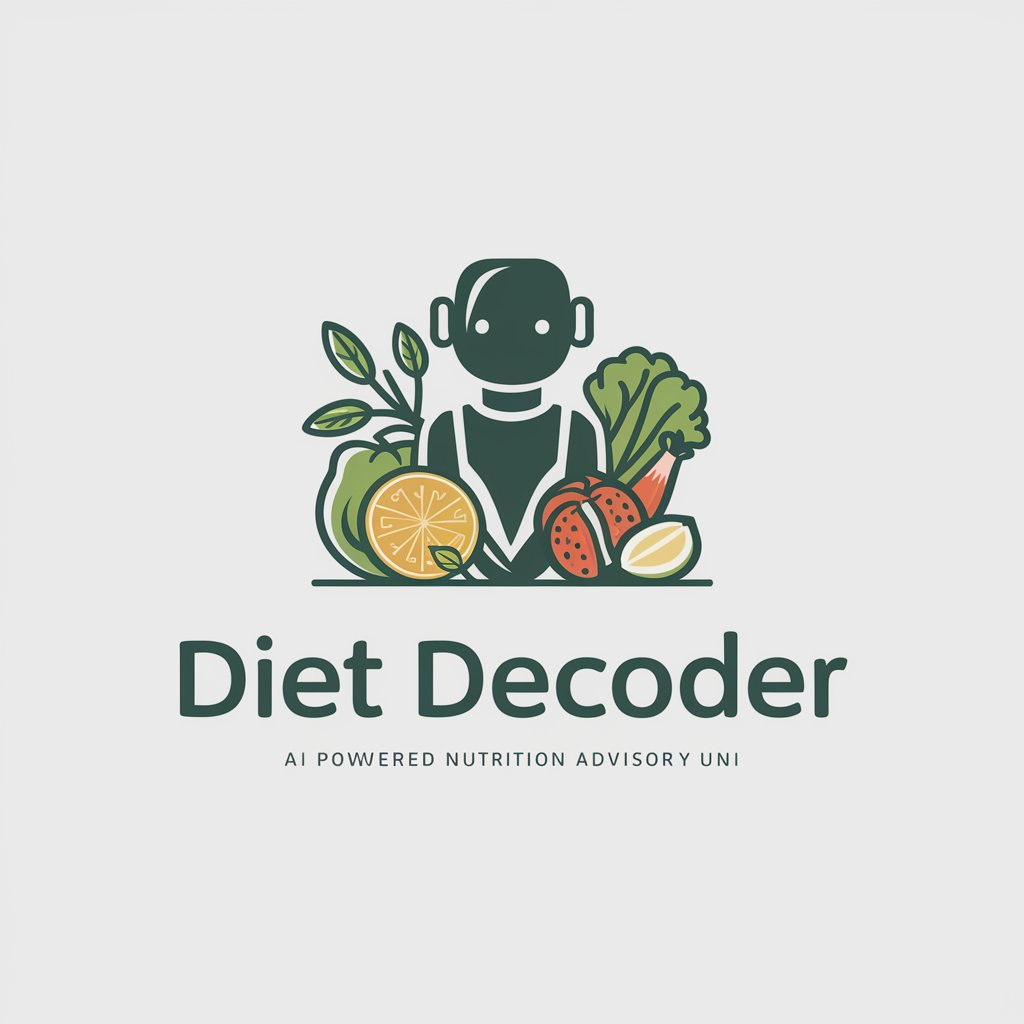
Diet Coach
Revolutionize Your Diet with AI

Diet Coach
Smart, personalized nutrition coaching

Diet Coach
Your AI-powered dietary companion

Frequently Asked Questions about Mediterranean Diet GPT
What is the Mediterranean Diet?
The Mediterranean Diet is a nutritional recommendation inspired by the dietary patterns of Greece, Southern Italy, and Spain in the 1940s and 1950s. It emphasizes consuming fruits, vegetables, whole grains, legumes, and healthy fats, along with moderate fish, dairy, and wine consumption.
How does the Mediterranean Diet benefit heart health?
The diet is rich in heart-healthy omega-3 fatty acids from fish and monounsaturated fats from olive oil, which can reduce the risk of cardiovascular diseases by lowering cholesterol levels and improving blood vessel health.
Can the Mediterranean Diet help with weight management?
Yes, the high fiber content from whole grains, legumes, fruits, and vegetables can help in feeling full longer, while healthy fats and proteins aid in metabolism regulation, supporting weight management.
What are some staple foods of the Mediterranean Diet?
Staple foods include olive oil, fresh fruits and vegetables, whole grains like farro and barley, legumes, nuts, seeds, herbs and spices, and lean proteins, particularly from fish and poultry.
Are there any lifestyle elements associated with the Mediterranean Diet?
Yes, it also encourages a lifestyle that includes regular physical activity, sharing meals with others, and enjoying life, which contributes to its overall health benefits.

